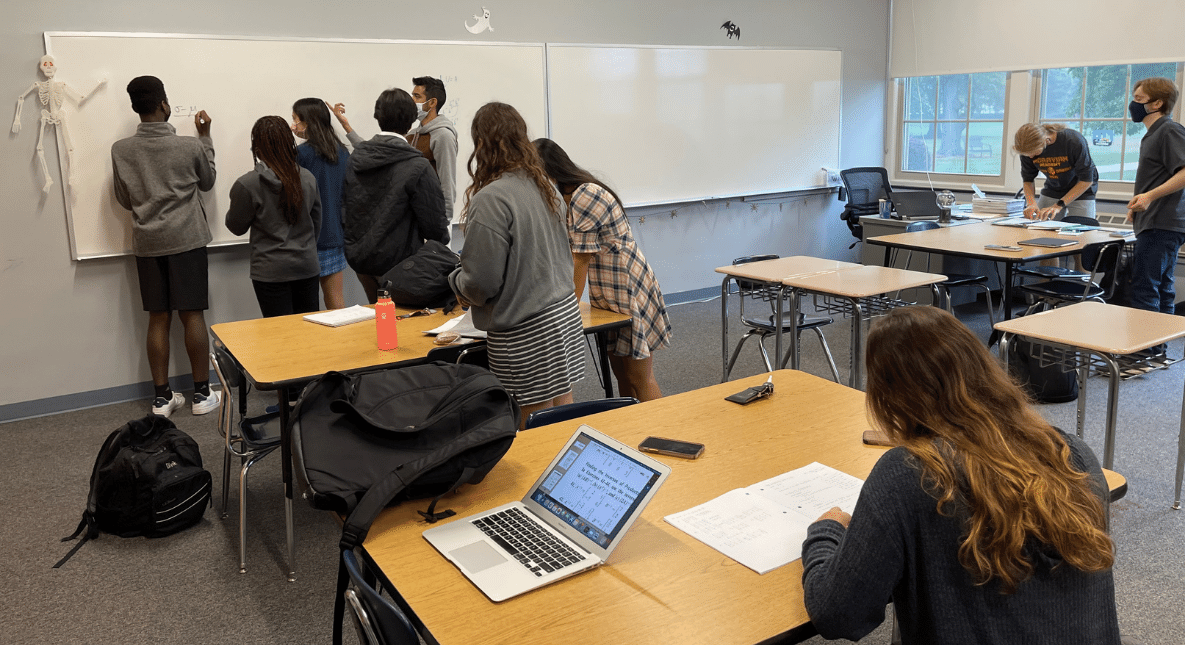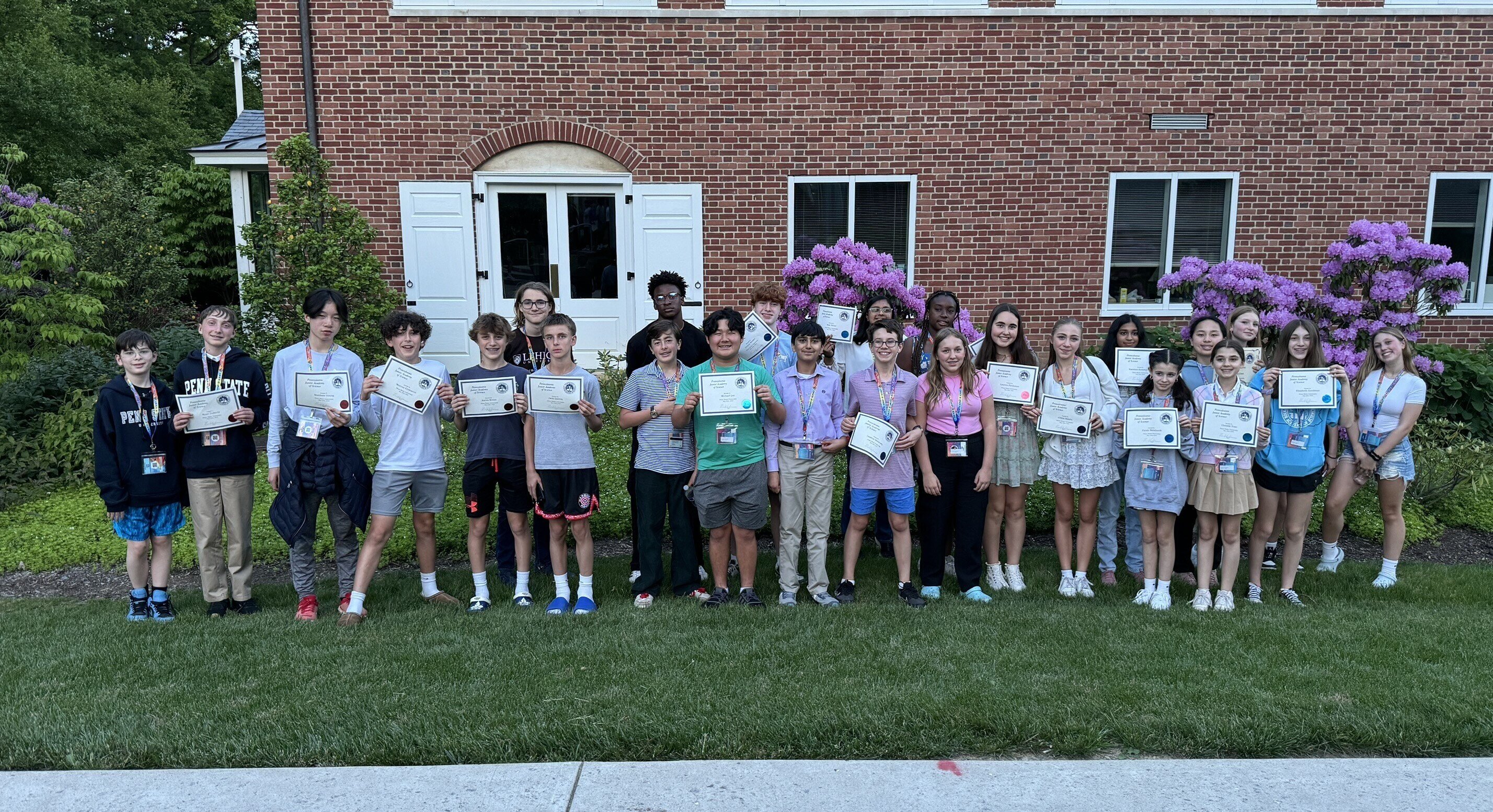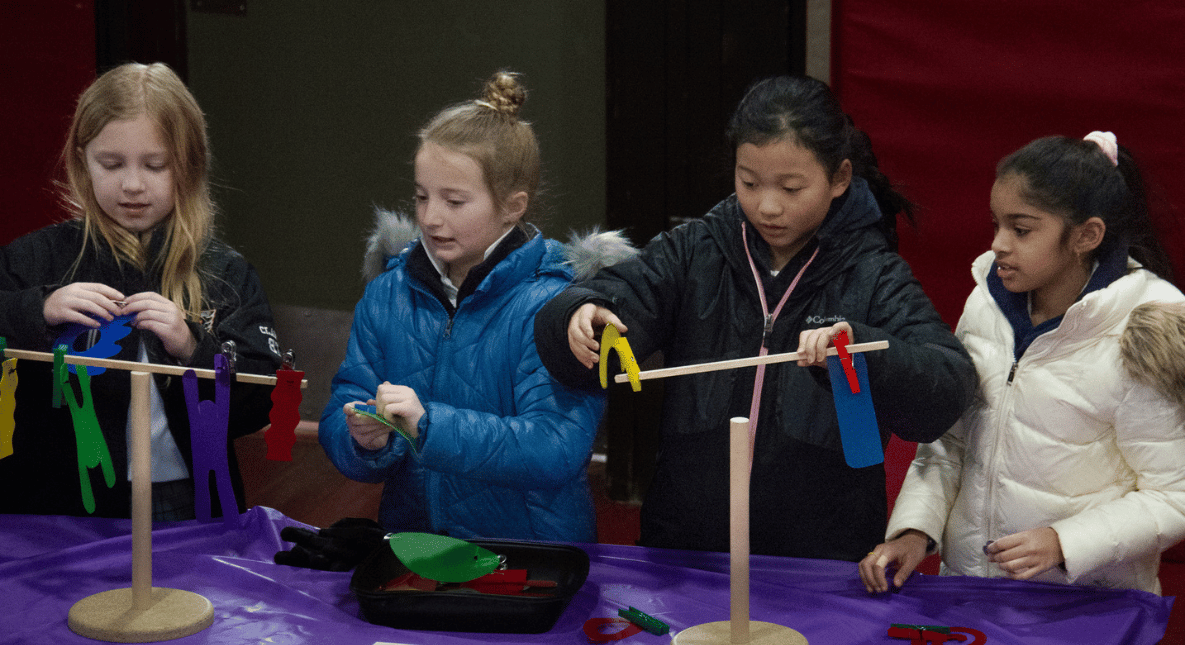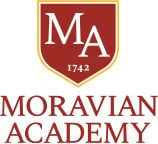A Portrait of a (Linear Algebra) Learner
"What does a learner look like at Moravian Academy?" is a question asked more than once during recent faculty gatherings.
Many esoteric answers have been given in the vacuum of these meetings, but I happened to catch a glimpse of a perfect answer to this query not long ago in my classroom. Mr. Weaver captured the portrait -- or more accurately, the picture -- and I will expand a bit on its inherent 1,000 words.
Like a ramp on a highway merging traffic in a single direction, lessons in Linear Algebra combine teaching and learning methods that propel the students onto one coherent path. The tried-and-true method of lecturing begins the process for a day or two, with the class listening to the motivation for the topics and how and why they work. Guided questions and prompts from the instructor let students experience the formation of these concepts and get invested in the process of discovery. Following the theory, a few cases are demonstrated, and then a series of increasingly difficult examples are tackled by the students, sans instructor intervention. Pods of two or three students bounce ideas off each other until sufficient time has passed for creative thought. A final regroup of the entire class then volunteers steps and solutions to the examples. "Rinse and repeat" four or five times leading up to a test.
That very process led to the corresponding picture -- the Linear Algebra class preparing for their next test. Observe: one larger group working together at the board to solve a problem; two smaller groups discussing other topics; one student preferring the solitude of looking over her own notes; a laptop opened to a practice problem assigned. All this is happening without the presence of the instructor. The instructor was instrumental in guiding them to this point and preparing them with direct tutelage. But now they display the confidence to think for themselves and collaborate with each other as equals. They portray an ideal portrait of a learner at Moravian Academy.
Epilogue: Each student in the twelve-member class was allowed to work with one partner during the test to further foster dialogue and sharing ideas. No resources other than their two brains and a calculator (for tedious computations) were allowed. Each group received a grade in the 90%-99% range. Picture perfect!


 myMA
myMA











